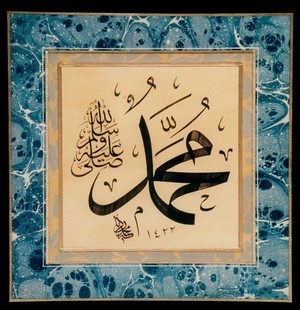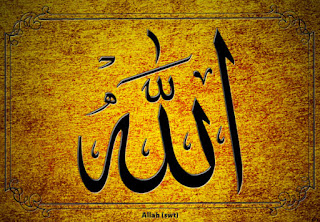Ramadan is a great favour which Allah has bestowed upon us,
Muslims. We shall perceive this favour only when we shall value it like it
deserves, otherwise many Ramadans shall come and go without us maximising fully
their benefits. The hadiths which I shall put before you show the virtues of
Ramadan. Narrated by Abu Masud al-Gifari (ra) in a Hadith whereby Hazrat
Muhammad (pbuh) has said:
“If my Ummah (community)
knew the value, the honour and the importance of the month of Ramadan properly,
they would desire the entire of the year to be Ramadan.”
In another Hadith narrated by Salman (ra):
 “On the last day of
Shabaan, the Noble Prophet (pbuh) delivered a sermon; he said: ‘O
people there comes over you now a great month, a most blessed month in which
lies a night more greater in virtue than a thousand months. It is a month in
which Allah has made Fasting (Roza/ Sawm) compulsory by day, and has made
Sunnah the Nafil night prayers (e.g.
Tahajjud prayers as mentioned by Allah in the Quran, and the Tarawee which
represents an excellent innovation which Hazrat Umar (ra) implemented for he
wanted to reunite all Muslims as one congregation following one Imam and not to
be divided – and besides, this is the true spirit of unity which must remain
alive whereby all Muslims must come together as one, under (the leadership of)
one Imam, especially the Imam whom Allah has raised for you, an Imam-e-Inquilaab,
a Khalifatullah, for there should be no division and different sects, but on the
contrary, it should be like in the true intention of Hazrat Umar (ra) to
reunite all people who were scattered and praying alone, to put them together
in one congregation, under one Imam).
“On the last day of
Shabaan, the Noble Prophet (pbuh) delivered a sermon; he said: ‘O
people there comes over you now a great month, a most blessed month in which
lies a night more greater in virtue than a thousand months. It is a month in
which Allah has made Fasting (Roza/ Sawm) compulsory by day, and has made
Sunnah the Nafil night prayers (e.g.
Tahajjud prayers as mentioned by Allah in the Quran, and the Tarawee which
represents an excellent innovation which Hazrat Umar (ra) implemented for he
wanted to reunite all Muslims as one congregation following one Imam and not to
be divided – and besides, this is the true spirit of unity which must remain
alive whereby all Muslims must come together as one, under (the leadership of)
one Imam, especially the Imam whom Allah has raised for you, an Imam-e-Inquilaab,
a Khalifatullah, for there should be no division and different sects, but on the
contrary, it should be like in the true intention of Hazrat Umar (ra) to
reunite all people who were scattered and praying alone, to put them together
in one congregation, under one Imam).
Whosoever
intends drawing near to Allah by performing any virtuous deed, for such a
person shall be the reward like the one who had performed a Fardh (Obligatory
act) in any other time. And whoever performs a Fardh, shall be blessed with the
reward of seventy Faraa-idh (Obligatory acts) in any other time.
This is indeed the month of patience, and the
reward for true patience is Jannah (Paradise). It is the month of sympathy with
one’s fellowmen. It is the month wherein a true believer’s rizq (sustenance) is
increased. Whosoever feeds another who fasted, in order to break the fast at
sunset, for the feeder there shall be forgiveness of sins and freedom from the
fire of Jahannam (hellfire), and for such a feeder shall be the same reward as
the one who fasted (who he fed) without that person’s reward being decreased in
the least.”
Thereupon we said, “O Messenger of
Allah, not all of us possess the means whereby we can give a fasting person to
break his fast.”
The Messenger of Allah (pbuh) replied:
“Allah
grants the same reward to the one who gives a fasting person to break the fast
a mere date, or a drink of water, or a sip of milk (for Iftar, to break his
fast). This is a month, the first of which brings Allah’s mercy (i.e. the first
part), the middle of which brings His forgiveness and the last of which brings
freedom from the fire of Jahannum. Whosoever lessens the burden of his servants
in this month, Allah will forgive him and free him from the hell-fire.”
“And in this month four things you should continue
to perform in great number, two of which shall be to please your Lord (Allah),
while the other two shall be those without which you cannot do. Those which
shall be to please your Lord, are that you should in great quantity bear
witness that there is no deity to worship except Allah (i.e. recite “Laa Ilaaha
Illallah”) and make much Istighfaar (i.e. repentance, seek the forgiveness of
Allah). And as for those without which you cannot do, you should beg of Allah,
entrance into Paradise and ask refuge in Him from hell-fire.”
“And whoever gave a person who fasted water to
drink, Allah shall grant that giver to drink from my fountain, such a drink
where after that a person shall never again feel thirsty until he enters Paradise.” (Baihaqi, Ibn
Hibban).
 A faster should take 6 precautions when he
observes his fast. Abu Ubaidah (ra) reports: “I have heard the Messenger of
Allah (pbuh) say: “Fasting is a shield for the
one who does not violate it.” (Ibn Majah, Nisaï, Hakim).
A faster should take 6 precautions when he
observes his fast. Abu Ubaidah (ra) reports: “I have heard the Messenger of
Allah (pbuh) say: “Fasting is a shield for the
one who does not violate it.” (Ibn Majah, Nisaï, Hakim).
In the same way that a shield protects someone, fasting also
protects man (human being) from his sworn enemy, i.e. Satan. In the other
Hadiths, we learn that fasting protects from the punishment of Almighty Allah
in the hereafter and it is also a protection against hell-fire.
Once someone asked
the Messenger of Allah (pbuh): “What annuls the fast?”
He (pbuh) replied: “Lying,
backbiting, fighting and vain disputes.”
Therefore, when you analyse these words of the Holy Prophet
(pbuh), he (pbuh) said that lying, backbiting (i.e. saying bad words on others
in their back), fighting, or vain disputes annul the fast just like food and
drink breaks the fast. Thus, when this
happens, that person loses all the blessings and rewards of fasting. All the
sacrifices that he made, by waking up early in the morning and following the
prescriptions of Allah and His Messenger (pbuh), at the end of the day, because
of indulging in forbidden things, he loses all. This is really a grievous sin,
especially in that blessed month (i.e. the month of Ramadan).
Six Points to Remember:
Therefore, there are six precautions which
we should take when we observe the fast:
1. That person (i.e. the
faster) should protect his sight/ eyes by not looking at forbidden things. Our
beloved prophet (pbuh) has said : “A look is like an arrow which comes
from Satan.” The one who for the fear of Allah protects his sight against
evil (i.e. he does not look at forbidden things/ beings), even in his talks
with friends, be it through phone, mobile or email; you should be very careful,
lest Allah rip away from you the mustard seed of Iman (faith) which was
in your heart, and especially when Allah has chosen you to do His Deen
works (i.e. the works of religion – Islam). You should behave well and not act
like a hooligan. You should maintain a distance with all that are forbidden and
preserve your dignity and status bestowed upon you by Allah. The Messenger of
Allah (pbuh) has said: “If you show such divinely-given dignity and status,
then Allah shall give you such power/ force in your faith that you shall be
able to taste and feel the sweetness of faith from the bottom of your heart.”
2. A person must protect his tongue from all forbidden
things such as lying, vain talks, backbiting, disputes, foul words, etc. In the
book of Hadiths of Bukhari we read that fasting is a shield for a faster. That is why, those who observe the fast should avoid all vain talks,
mockeries, disputes etc. If someone readies himself to fight (dispute) with us,
we should simply say: “I am fasting”. In other words, we should not
start a dispute on our own and if the other one seeks to start a dispute, we
should not fall into this trap.
In the time of the Holy Prophet (pbuh), there
used to be two women who observed the fast and they reached a point that hunger
was so poignant that they were on the verge of dying. The Sahaba (ra) went to
see them and these women were given each a bowl to vomit therein. After vomitting,
there were blood and pieces of flesh which came out from them. The Sahaba (ra)
were astonished and the Holy Prophet (pbuh) told them: “These
two women fasted from what Allah has made licit for them however, they broke
their fast with what Allah has made illicit upon them when they sat with one
another to backbite others.”
It is clear from that Hadith
that backbiting makes fasting unbearable. That is why those two women nearly
died. In fact, all evil deeds render fasting difficult (to accomplish/ to
sustain). Experience show that
fasting is not difficult for those servants (of Allah) who are sincere and
devoted (i.e. the Muttaqiin – those who are righteous, who have the fear
of Allah in their hearts). For them, fasting is never an ordeal whereas for the
sinful ones, fasting is ever an ordeal.
This sermon does not end here, but I need
to stop here for today due to lack of time and the members have to return back
to work. I pray that Allah gives me the opportunity to continue on the same
subject of my sermon next week (next Friday), Insha-Allah. If I
continue, it shall be too long, especially when the six precautions while
fasting need to be explained, and I have mentioned just two of them. Insha-Allah,
I shall continue on the same subject next Friday.
I wish all of you – all my disciples
worldwide and all Muslims – Ramadan Mubarak.
May Allah make you blessed (Mubarak) in the blessed month which is
awaiting us with open arms. In return we should also open wide our arms and hug
this extraordinary and special guest sent by Allah for us. It is truly a
treasure which Allah has bestowed upon us, and it is now for us to use this
treasure in the best way which exists, and verily the best way is to follow the
Sunnah (practice) of our noble prophet Hazrat Muhammad (pbuh).
Insha-Allah, Ameen.
---Extracts from the Friday Sermon of 26 May 2017 (29 Shabaan 1438 AH) delivered by Khalifatullah Hadhrat Munir Ahmad Azim Saheb (atba) of Mauritius.






















